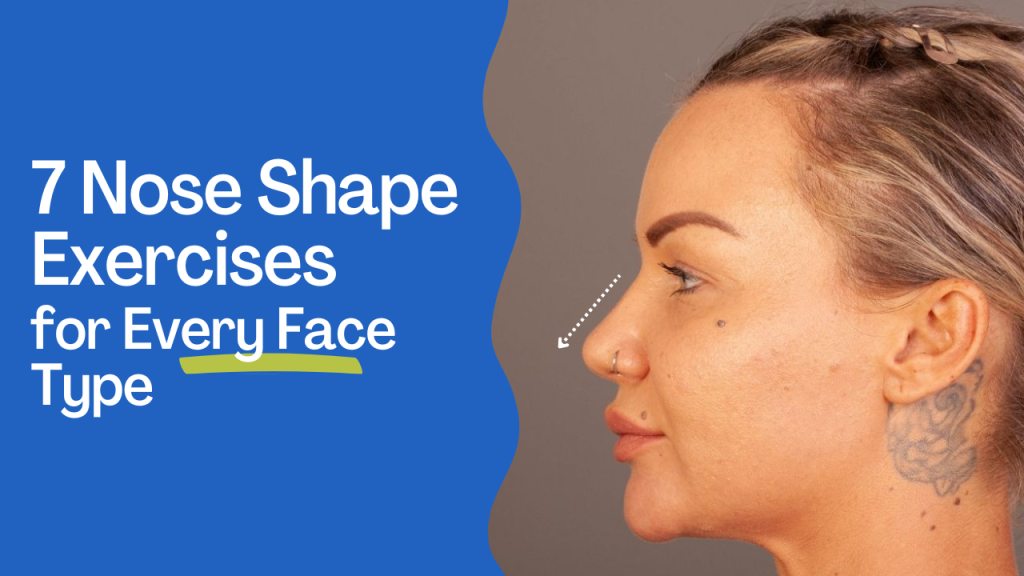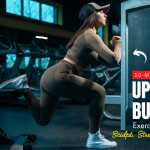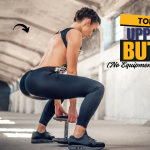“Can you really reshape your nose naturally – and does your face type matter?”
That’s the question buzzing across social media and beauty forums today. With the rise of non-surgical techniques, more people are turning to nose shape exercises as a way to enhance their facial harmony—no needles or knives involved. But here’s the catch: not all nose exercises are created equal, and your face shape plays a big role in choosing the right ones.
In this guide, we’ll uncover 7 powerful nose-shaping exercises that are easy, safe, and tailored to fit different face types. Whether your goal is to lift a droopy tip, slim down a wide bridge, or create balance with your cheekbones, these moves may just be your natural nose fix.

Table of Contents
Perks of Nose Shape Exercises
- Non-Surgical & Natural
- No needles, no downtime, no side effects—just your fingers and time.
- Enhances Facial Harmony
- Tailored exercises help your nose blend more proportionately with your face type.
- Improves Muscle Tone
- Strengthens small facial muscles around the nose, leading to a more lifted, refined look.
- Supports Better Breathing
- Breath-control exercises can improve airflow and reduce nasal tension.
- Reduces Puffiness & Swelling
- Gentle pressure and movement boost lymphatic drainage, helping to slim the nasal area.
- Boosts Skin Tightness
- Repeated motion stimulates collagen and blood circulation, improving skin elasticity.
- Free & Accessible
- No expensive equipment or treatments are required—it can be done anytime, anywhere.
- Complements Facial Yoga
- Works well when combined with jawline, cheek, or eye area exercises for total facial sculpting.
- Promotes Mindfulness & Relaxation
- The slow, intentional movements also help relieve facial tension and stress.
- Builds Healthy Posture Awareness
- Good posture supports facial symmetry and enhances the natural appearance of your nose.
Do’s and Don’ts of Nose Shape Exercises
| Do’s | Don’ts |
|---|---|
| Do practice daily for 5–10 minutes | Don’t expect overnight results |
| Do choose exercises based on your face type | Don’t apply excessive pressure on your nose |
| Do keep your hands clean before touching skin | Don’t do exercises if you have nasal injuries |
| Do stay consistent for at least 4–6 weeks | Don’t skip sessions and expect changes |
| Do pair with facial yoga and hydration | Don’t use harsh tools or pull the skin aggressively |
| Do use a mirror to guide proper form | Don’t perform exercises if they cause pain |
| Don’t rely on exercise for major structural changes | Don’t rush through reps—it defeats the purpose |
| Do consult a professional if unsure | Don’t rely on exercises for major structural changes |
Why Consider Nose Exercises?
Before diving in, let’s clear the air—nose exercises won’t drastically change bone structure. However, they can strengthen the small muscles around the nose, improve circulation, promote skin tightness, and subtly affect the cartilage over time. When done consistently, they may help:
- Sharpen the nasal tip
- Reduce puffiness around the bridge
- Improves breathing through muscle relaxation
- Create a more refined look based on face symmetry
Now, let’s match the moves to your facial framework.
7 Nose Shape Exercises Based on Face Type
1. Nose Shortening Lift For Oval Faces
Target: Droopy or elongated noses
Best For: Oval face types, where the nose often becomes the center point
How to Do It:
- Place your index finger on the tip of your nose
- Push gently upward
- Flare your nostrils and hold for 5 seconds
- Repeat 10–15 times
Why it works: Oval faces have balanced proportions, so lifting the nose tip slightly can help enhance elegance without disrupting harmony.
2. Bridge Squeeze – For Round Faces
Target: Wide or undefined nasal bridges
Best For: Round faces that benefit from vertical definition
How to Do It:
- Pinch the bridge of your nose with your thumb and index finger
- Hold and apply gentle pressure for 10 seconds
- Breathe deeply, then release
- Repeat 10 times
Why it works: Round faces typically lack angular features. Defining the bridge adds structure, making the face appear slimmer.
3. Side Nose Slide – For Square Faces
Target: Asymmetrical or broad noses
Best For: Square faces with strong jawlines
How to Do It:
- Place one finger on the side of your nose
- Slide it up and down gently
- Alternate sides
- Do this for 2–3 minutes daily
Why it works: The move subtly tones the nasal muscles to bring symmetry and soften sharp facial contrasts.
4. Nose Slimmer Press For Heart-Shaped Faces
Target: Wide nostrils and lower nose width
Best For: Heart-shaped faces that have a narrow chin and wide cheeks
How to Do It:
- Smile while pushing your nose sides inward with your index fingers
- Hold for 10 seconds
- Repeat 15 times
Why it works: Slimming the nose’s base balances with broader cheek areas typical in heart-shaped faces.
5. Tip-Toning Tap – For Long Faces
Target: Downward-pointing or weak nasal tips
Best For: Long faces needing horizontal balance
How to Do It:
- Tap the tip of your nose gently using your finger
- Continue for 1–2 minutes, twice daily
Why it works: It encourages muscle tightening around the nasal tip for a subtle upward lift, making long faces appear more proportionate.
6. The ‘O’ Nose Circle – For Diamond Faces
Target: Bulky nasal appearance
Best For: Diamond-shaped faces with narrow hairlines and pointed chins
How to Do It:
- Form an “O” with your lips
- Use your fingers to flare nostrils and hold
- Breathe in deeply and exhale through your nose
- Repeat 10–12 times
Why it works: This exercise firms the entire nasal area, blending sharper mid-face contours typical in diamond faces.
7. Breath Control Lift – For All Face Types
Target: General reshaping, posture, and breathing
Best For: Anyone, especially if you’re unsure of your exact face type
How to Do It:
- Sit upright and breathe in deeply through your nose
- Hold your breath for 5–10 seconds
- While holding, use your fingers to press along the bridge
- Release and exhale slowly
- Repeat 5 times
Why it works: It promotes oxygenation, tones inner nasal muscles, and helps realign breathing posture for a holistic approach.
Nose Exercise Plan Based on Face Type (Weekly Routine)
| Face Type | Recommended Exercises | Weekly Plan |
|---|---|---|
| Oval Face | 1. Nose Shortening Lift 2. Breath Control Lift | Daily (Mon–Sun) 10 reps each, 2 sets |
| Round Face | 1. Bridge Squeeze 2. Tip-Toning Tap | Mon–Sat 10 reps of each, 2–3 sets |
| Square Face | 1. Side Nose Slide 2. Breath Control Lift | Mon–Fri 2 mins slide + 5 reps lift |
| Heart-Shaped | 1. Nose Slimmer Press 2. ‘O’ Nose Circle | Mon–Sat 15 reps slimmer + 12 circles |
| Long Face | 1. Tip-Toning Tap 2. Nose Shortening Lift | Daily (Mon–Sun) 2 mins tap + 10 reps lift |
| Diamond Face | 1. ‘O’ Nose Circle 2. Side Nose Slide | Mon–Sat 12 circles + 2 mins slide |
| All Face Types | 1. Breath Control Lift 2. Gentle Facial Massage (optional add-on for circulation) | Daily 5 reps breath control + 1 min massage |
Pro Tips for the Weekly Plan
- Time per session: 5–10 minutes max
- Tools needed: None (just clean hands & mirror)
- Optional add-ons: Hydrating serum or facial oil for massage-friendly movements
- Best time to do: Morning or bedtime (when relaxed)
Pro Tips to Boost Results Naturally
- Consistency is Key: Perform exercises daily for at least 4–6 weeks to notice subtle results.
- Facial Yoga Combo: Pair nose exercises with facial yoga or massages for better circulation and muscle balance.
- Hydration & Diet: Healthy skin reflects internal care—stay hydrated and maintain skin elasticity.
- Avoid Overdoing: Gentle pressure is enough—aggressive squeezing can lead to redness or bruising.
- Posture Matters: Slouching can accentuate a droopy nose. Keep your neck and back straight.
Can These Exercises Replace Surgery?
Not entirely. If you’re looking for dramatic results, cosmetic procedures like rhinoplasty are still the only way to alter nasal bone or cartilage permanently. However, if you’re after natural refinement, improved breathing, and a more toned look, these exercises can definitely enhance your appearance—especially when chosen based on your unique face type.
Final Thoughts
Nose exercises might not be magic, but they’re a natural, low-effort, and zero-cost way to enhance your facial aesthetics over time. The secret? Match the right move to your face type and stick with it. Add in some mindfulness, a little facial massage, and proper breathing—and your nose might just thank you for the makeover.
Frequently Asked Questions (FAQs)
Can nose exercises actually change the shape of your nose?
Nose exercises can’t change bone structure, but they can tone nasal muscles, reduce puffiness, and promote a more refined appearance over time. They are most effective for enhancing cartilage flexibility and improving overall nose definition.
How long does it take to see results from nose exercises?
Results vary based on consistency and individual facial anatomy. On average, noticeable changes may appear after 4–6 weeks of daily practice. Subtle improvements in lift, tone, and definition are most common.
Are nose exercises safe to do every day?
Yes, most nose exercises are safe for daily use if done gently. Avoid excessive pressure, which can irritate the skin or cause bruising. Always listen to your body and stop if you feel discomfort.
Which face type benefits the most from nose shaping exercises?
All face types can benefit—but choosing exercises tailored to your specific facial structure (round, square, oval, etc.) ensures more visually balanced results. The right match enhances harmony rather than creating contrast.
Do nose exercises help with breathing issues?
Certain exercises, especially breath control techniques, can support better nasal airflow and relieve mild congestion by strengthening inner nasal muscles and encouraging good posture.
Can these exercises replace cosmetic surgery?
No. Nose exercises are non-surgical alternatives for subtle improvements. For significant reshaping of the nasal bone or size reduction, procedures like rhinoplasty are required. However, exercises are a great starting point for those seeking natural enhancement.
Do I need to use any tools or products with these exercises?
No tools are necessary. All exercises use just your fingers and controlled movements. However, some users find that facial oils or serums help reduce friction and make the experience more comfortable during massage-style moves.





